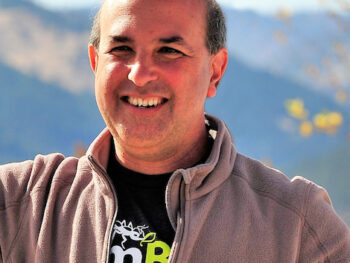Webinar explores advances in systems thinking

The Society for the Advancement of Undergraduate Biology Research (SABER) conference is always one of our favorite meetings because it gives us the opportunity to hear about all the cutting-edge ideas in the undergraduate biology education research world. Hearing about these projects helps to hone SimBio’s vision and adds broader context to our mission.
This year, one of our favorite talks was “Unifying Biology Education with Systems and Systems Thinking” from Dr. Jenni Momsen, and we’re excited to announce that Dr. Momsen has graciously offered her time to co-host a webinar of that talk on Thursday, December 8th, at 10am pacific / 1pm eastern!
Over a decade ago, the Vision and Change in Undergraduate Biology Education: A Call to Action report helped to unify much of undergraduate biology education by setting forth a series of core concepts of biological literacy for undergraduate students: evolution, structure and function, information flow, exchange and storage, pathways and transformations of energy and matter, and systems. Further, the report emphasized an idea that we believe wholeheartedly at SimBio and is central to our company mission: students learn best when they are active participants in biology courses, and doing science is key to learning science. The initial Vision and Change report helped translate these concepts into actionable and effective ways to structure undergraduate biology curricula.
While the initial Vision and Change report was critical for defining goals for undergraduate biology educators, the report stopped short of articulating how and why those core concepts are connected. As biologists, we know that biology is the science of living systems and not just a set of distinct concepts and ideas to be memorized, but how best to communicate these ideas to our students? In their 2022 paper and recent presentation, Momsen et al. suggest a systems-thinking approach for structuring classes by emphasizing connections among the core competencies in the initial Vision and Change report, while also outlining new core competencies and skills for teaching systems thinking.
This new framework is especially exciting for us because we build our teaching tools around scenarios involving simulations and animations of biological systems. We do this both to encourage systems thinking and because stories help engage student interest. For example, in our popular Cellular Respiration Explored tutorial, we begin with a simple story: A person is training for a bike race and wants to optimize their performance. To learn more about this system, we first describe the processes and components in the electron transfer chain, much like one might see in a typical biology textbook. With this background information, students then begin manipulating simulations that provide a hands-on approach to understanding the underlying mechanisms of proton gradients and the role of the various proteins in the electron transport chain. By conducting simulated experiments, students discover how changes in the system, such as low oxygen or various drugs, directly impact the underlying mechanisms of the electron transport chain. Finally, we connect those concepts back to exercise and effective race training. While we strive for this kind of systems-thinking approach in all our content, we believe our approach to teaching biological systems can only be improved with the formality of Momsen’s framework.
How do you incorporate systems thinking with your teaching?
While we have some ideas about how Momson’s framework is useful for improving systems thinking in biology classrooms, we’re interested in hearing about the utility of these ideas from instructors on the front lines of biology education, and that’s why we’re excited to host Dr. Momsen for an upcoming webinar! In addition to the presentation of the big ideas from her 2022 paper, we would love to hear about what you are doing to promote systems thinking in your classes, the challenges you have experienced with trying to get your students thinking in a systems framework, and how useful you feel this new framework will be for you. We hope you can attend!
To learn more about this work from Momson and her collaborators, visit their website.
Listen to the Webinar




 Six Degrees of Biology
Six Degrees of Biology
